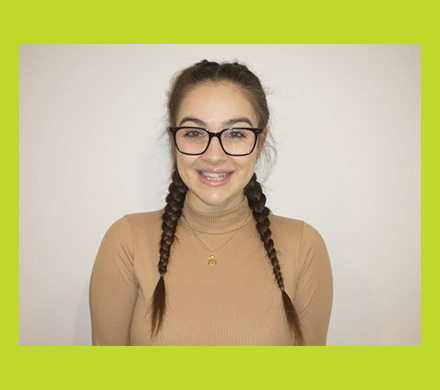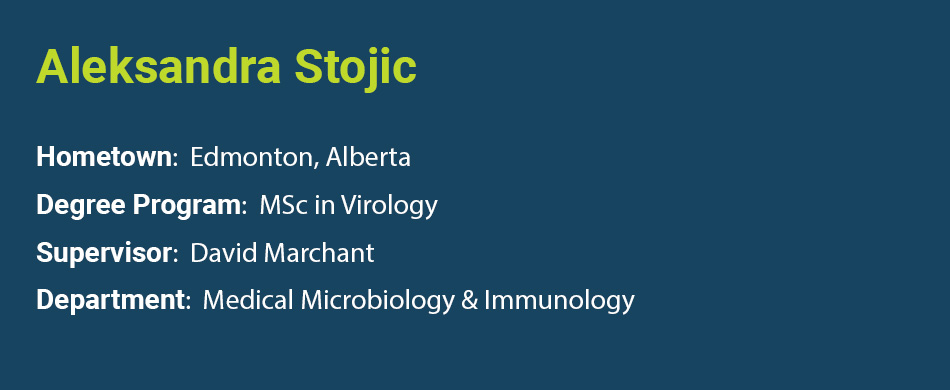2021 Graduate Studies Entrance Award


Project title: RSV coinfections and monoclonal antibody resistance
How would you describe your research project to someone without a scientific background?
Respiratory Syncytial Virus (RSV) infections are one of the leading causes of infant hospitalization and mortality worldwide. While age is the primary risk factor for severe RSV infection, recent evidence suggests that co-infections with bacteria or other viruses can significantly alter RSV disease severity and the body’s associated immune response. My project focuses on the effects of co-infection with RSV and other pathogens. Additionally, I look at how RSV mutates to become less susceptible to various antibody treatments.
What impact do you hope this project makes once completed?
My hope is that a better understanding of RSV behavior, in co-infections and with antibody treatments, will open up therapeutic options for the prevention of RSV, as well as aid in the preservation of palivizumab, the only therapy currently available against RSV infection.
How has the support from Li Ka Shing Institute of Virology helped you?
The Li Ka Shing Institute of Virology professors, staff, and students are its best resource. Being a part of a community that is supportive and passionate about science is what drives me to further pursue virology research.
What is it about your field of study that speaks to you?
I am drawn to the microscopic world of pathogens that lives alongside our own. I find it fascinating that they have the ability to initiate a cascade of seemingly minor events that can lead to catastrophic disease manifestations in people, despite their miniscule size.
What has been the greatest lesson you have learned while doing your research?
The greatest lesson I have learned so far is that as much as you don’t want to fail or make mistakes in research, that’s often how you learn the most. So, it’s best if you get comfortable with it.
What is your favorite distraction or hobby?
Spending time in the mountains.
If you could live in any other time, when might that be?
At some point in the past, to go see if certain historical events happened the way they’ve been recorded.